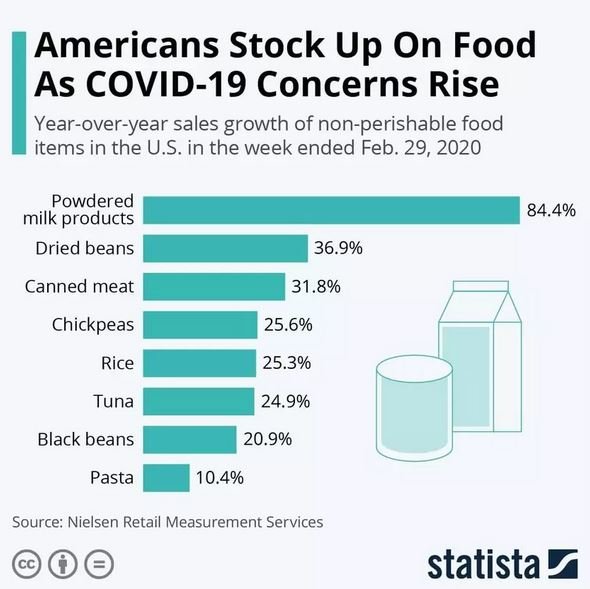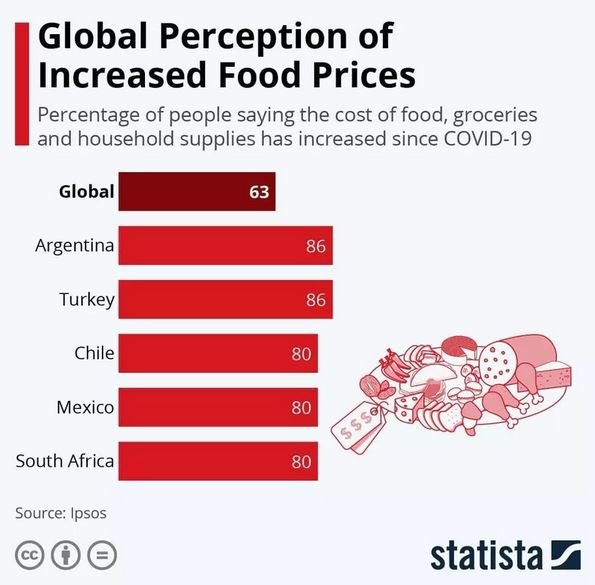
The world is facing an unprecedented hunger crisis
Since the first wave of COVID-19, food banks have been overwhelmed. Consumer Report’s new publication suggests things are getting dire: one in five Americans has now turned to a food pantry, food bank or community food distribution at some point since the pandemic began – a 50% increase. Almost 10% of parents with children under five years of age reported high rates of very high food insecurity. This is a public health concern.
Globally, food costs have risen for four straight months as countries begin to stockpile. Individuals too are hoarding staples as they stay indoors, clearing shelves at local grocery stores. Despite stable global food prices, numerous countries have experienced a varying level of inflation at the consumer level. These rising food prices have a more significant impact on vulnerable communities since they spend a larger portion of their income on food.

Unemployment and the increase in the cost of food make buying food difficult for more families. With winter coming, families must decide between keeping the lights on or feeding their families. According to the Household Pulse survey, the number of parents with children younger than five who reported that their children weren’t eating enough is at a historic high.
The loss of childcare and meals provided for free or at a reduced cost at school has exacerbated many families' food insecurity. As schools close, millions of kids, many families are losing their access to free or reduced-cost food programmes that these schools provide. In the US, about 35 million people face hunger – roughly the population of Canada. Food insecurities in families with children have more than tripled to 29.5% according to researchers at Northwestern.
The UN World Food Programme has warned that an additional 130 million people could face acute food insecurity by the end of 2020, because of income and remittance losses. This is in addition to the 135 million people who were already acutely food insecure before the crisis
As always, the people who had fewer means before an economic downturn suffer more during downturns and for longer. The crisis is worse for people of colour. More than a third of Black Americans and 22% of Hispanics have used a food pantry, food bank or community food distribution during the pandemic.

But to counter the usual narrative, at Feeding America, the largest hunger-relief not-for-profit in the US, 40% of visitors between March and June 2020 were new, says Executive Vice President and Chief Operating Officer Katie Fitzgerald.
There are immediate and long-term consequences from inadequate nutrition. Many families will go hungry this Thanksgiving. If you have the means, support the mutual aid organizations in your neighbourhood. These hyper-local community-based networks can offer immediate support and relief to families in need. Many local food banks and pantries are also struggling under this additional strain, do your research and help wherever and however you can.










